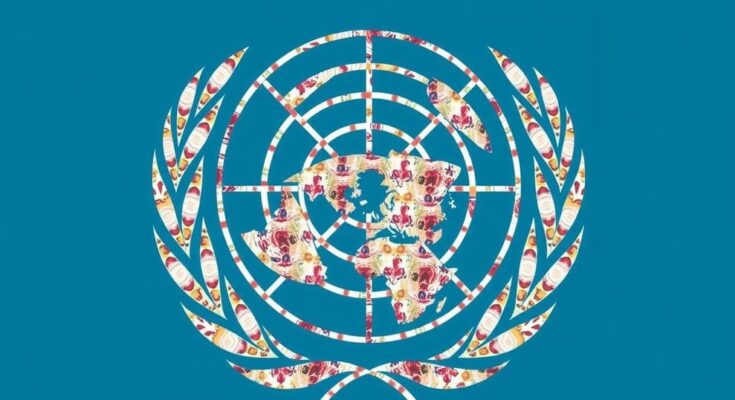During the COP29 climate summit in Baku, Azerbaijan, developing nations rejected a draft proposal for climate funding, which failed to meet their financial needs for climate adaptation and mitigation. With activists protesting and tensions rising, key negotiating groups walked out, further complicating efforts to reach a consensus on climate finance. The parties continue to seek a viable solution amidst increasing urgency over the climate crisis.
The United Nations climate summit in Baku, Azerbaijan, has descended into a state of disarray following the rejection of a proposed deal aimed at providing climate funding for developing nations. Negotiators from low-income countries expressed dissatisfaction with a rough draft that suggested $300 billion in financial assistance by 2035, which fell significantly short of the $1.3 trillion they deemed necessary. Activists demonstrated against these proposals, voicing their concerns about wealthier nations’ commitments and highlighting the ongoing climate crisis. As tensions escalated, several delegations, particularly from Africa and the Least Developed Countries (LDC) group, walked out of negotiations, emphasizing their discontent. Despite the setbacks, there remains a glimmer of hope among some negotiators, yet the urgent call for equitable climate finance continues to resonate in the conference halls.
The COP29 climate summit serves as a critical meeting point for global climate negotiations, where nations gather to discuss funding and strategies to combat climate change, especially for vulnerable countries facing the harshest effects. The historical context includes a commitment by wealthy nations to support poorer nations through financial aid, as established in prior agreements. However, the substantial amount required for effective adaptation and mitigation efforts remains a contentious issue, with recent negotiations revealing a significant gap between the needs of developing countries and the commitments from wealthier nations. The ongoing dialogue reflects the complexities of international climate politics amid growing urgency for action on climate change.
The rejection of the draft climate finance deal at COP29 underscores the growing frustration among developing nations regarding inadequate financial commitments from wealthier countries. As parties struggle to reach a consensus, the necessity for a more substantial and equitable financial framework remains paramount to support those most adversely affected by climate change. While negotiations continue, the urgency of the climate crisis amplifies the need for urgent agreements that can satisfy the demands of all countries involved.
Original Source: apnews.com




